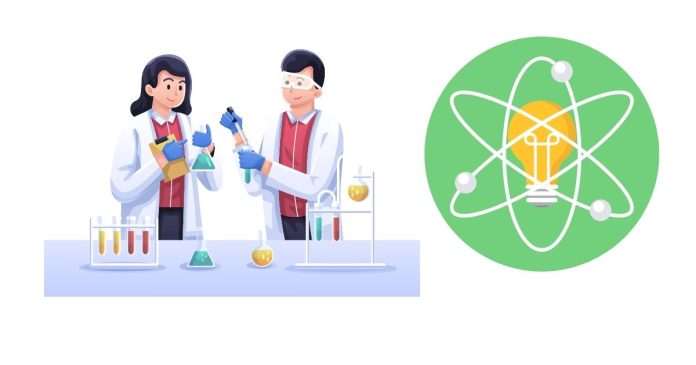Science and technology have evolved through the years thanks to brilliant minds and their innovative ideas. Throughout history, there have been remarkable scientists who have reshaped the world with their ground-breaking inventions. Here’s a look at the top 10 scientists and the inventions that changed the course of human history:
1. Nikola Tesla – The Alternating Current (AC) System
Nikola Tesla, one of the most visionary inventors of all time, is best known for his work with alternating current (AC) electricity. Tesla’s invention of the AC system revolutionized the way electricity is transmitted and distributed, paving the way for modern electrical grids. His discoveries in electromagnetism, wireless communication, and induction motors have had lasting impacts on various technologies we use today.
Key Inventions:
- Alternating Current (AC)
- Tesla Coil
- Induction Motor
- Radio Waves
2. Thomas Edison – The Electric Light Bulb
Known as the “Wizard of Menlo Park,” Thomas Edison was a prolific inventor who held over 1,000 patents. His most notable invention was the commercially practical electric light bulb. Edison’s development of the filament for the bulb, along with his work in creating the first practical electric power system, transformed society by making electricity accessible and practical for everyday use.
Key Inventions:
- The Electric Light Bulb
- Phonograph
- Motion Picture Camera
3. Marie Curie – Radioactivity
Marie Curie, a pioneering physicist and chemist, was the first woman to win a Nobel Prize and remains the only person to win Nobel Prizes in two different sciences. She is renowned for her discovery of the radioactive elements polonium and radium, which significantly advanced the field of nuclear physics. Her research in radioactivity has had profound implications in medicine, particularly in cancer treatments.
Key Inventions/Discoveries:
- Radioactivity
- Polonium
- Radium
4. Albert Einstein – The Theory of Relativity
Albert Einstein is one of the most influential scientists in modern history, best known for his theory of relativity, which reshaped our understanding of space, time, and gravity. His equation E=mc², which shows the relationship between mass and energy, has become one of the most famous formulas in the world. Einstein’s work has had a profound impact on the fields of physics, astronomy, and cosmology.
Key Inventions/Discoveries:
- Theory of Relativity
- Photoelectric Effect (Foundation of Quantum Theory)
- Mass-Energy Equivalence (E=mc²)
5. Alexander Graham Bell – The Telephone
Alexander Graham Bell is credited with inventing the first practical telephone, which revolutionized communication. His invention made it possible for people to speak to each other over long distances, transforming not only personal communication but also business and industry on a global scale.
Key Inventions:
- Telephone
- Photophone (precursor to fiber-optic communication)
- Audiometer
6. Isaac Newton – Laws of Motion and Universal Gravitation
Sir Isaac Newton was a mathematician, physicist, and astronomer whose work in the 17th century laid the foundation for classical mechanics. His three laws of motion and the law of universal gravitation have become fundamental principles that govern much of the physical world. Newton’s discoveries continue to be applied in various fields, from engineering to space exploration.
Key Inventions/Discoveries:
- Laws of Motion
- Universal Gravitation
- Calculus
7. Galileo Galilei – The Telescope
Galileo Galilei was a pivotal figure in the Scientific Revolution and is often called the “father of modern science.” He perfected the telescope and used it to make groundbreaking astronomical observations, including the moons of Jupiter, the phases of Venus, and the craters of the Moon. His work challenged established scientific views and laid the groundwork for the development of modern physics.
Key Inventions:
- The Telescope
- Improvements to the Thermometer
- Pendulum Clock
8. Louis Pasteur – Pasteurization and Germ Theory
Louis Pasteur, a French microbiologist and chemist, made groundbreaking contributions to the fields of medicine and microbiology. His development of the germ theory of disease led to the invention of pasteurization, a process that kills harmful microbes in food and drinks. Pasteur’s work paved the way for the development of vaccines and sterilization techniques, saving countless lives.
Key Inventions/Discoveries:
- Pasteurization
- Germ Theory of Disease
- Rabies Vaccine
9. Charles Darwin – Theory of Evolution by Natural Selection
Charles Darwin, a British naturalist, is best known for his theory of evolution by natural selection, which revolutionized biology and our understanding of the development of life on Earth. His book On the Origin of Species laid out his ideas on how species evolve over time, fundamentally changing the way we view the origins of life and the diversity of species.
Key Inventions/Discoveries:
- Theory of Evolution
- Natural Selection
- Survival of the Fittest
10. Leonardo da Vinci – The Flying Machine and Anatomical Studies
Leonardo da Vinci, known for his exceptional artistic talents, was also an ingenious inventor and scientist. His designs for flying machines and other mechanical devices were ahead of their time. Da Vinci also made significant contributions to anatomy through his detailed sketches and studies of the human body, providing insights that would influence both medicine and art.
Key Inventions/Discoveries:
- The Flying Machine
- Helicopter Design
- Anatomical Drawings



